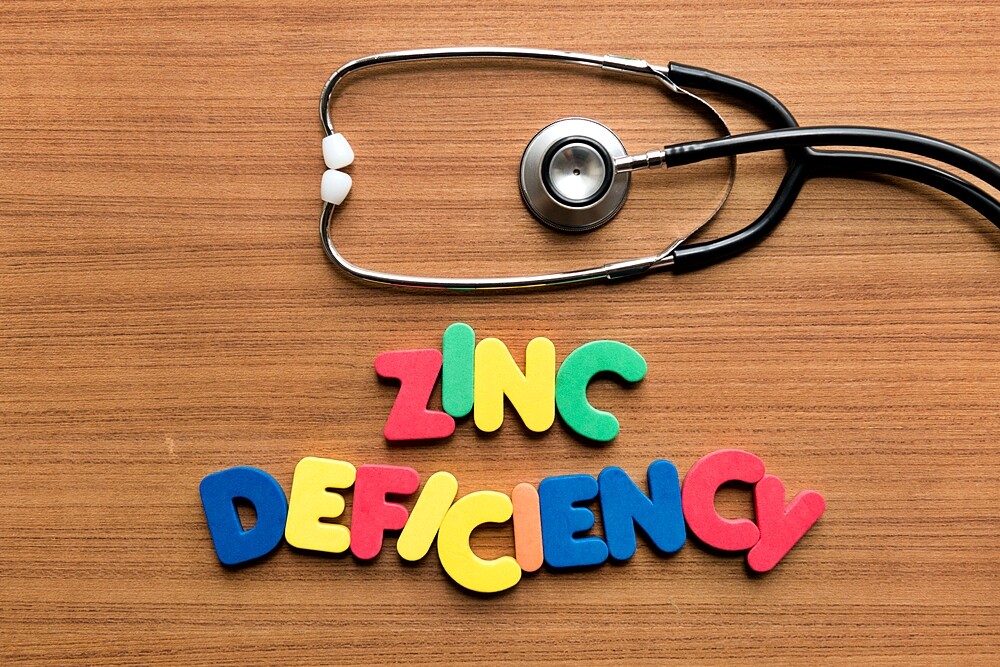Zinc deficiency causes various unspecific symptoms, so it is not easy to recognize. We reveal typical signs and what helps.
What is a zinc deficiency?
Zinc deficiency causes several symptoms that are difficult to classify, such as hair loss and brittle fingernails. Zinc is an essential trace element, which means that the body cannot produce it itself. It must therefore be supplied via zinc preparations or diet – primarily through meat consumption. About 25 percent of all adults in the USA suffer from a zinc deficiency.
What does the body need zinc for?
Zinc is involved in a variety of physical processes – including the activation of the immune system, metabolism and hormones. This is also one reason why zinc deficiency causes such unspecific symptoms. And it is not as easy to detect as iron deficiency, for example. There is a blood test for zinc deficiency, but it is unreliable – the deficiency only becomes apparent in the blood when it is already very advanced.
Symptoms: How do I recognize a zinc deficiency?
It is true that there are no symptoms that exclusively indicate a zinc deficiency. However, if several of the following complaints occur, a zinc deficiency is obvious:
- Hair falls out
- Nails are brittle
- High susceptibility to infections / colds
- Wound healing is delayed
- Taste and odour disorders
- Tiredness
- Avolition
- Mood swings
- Concentration disorders
- Dehydrated skin
- Dry eyes
- Raised blood glucose levels
What causes a zinc deficiency?
Most often a zinc deficiency occurs if not enough zinc is taken in with food. Normally healthy adult men need ten milligrams of zinc per day, women seven milligrams. For comparison: with 50 grams of Edam one already takes in five milligrams of zinc. But other factors or illnesses besides diet can also trigger a zinc deficiency. These include:
- Diabetes
- Diseases of the liver, intestines or stomach
- Increased drinking
In addition, certain factors increase the need for zinc. These include:
- Smoking
- Stress
- Diseases like cancer
- Heavy sweating
Pregnant and breastfeeding women, older people as well as children and adolescents generally have a higher need for zinc.
Treatment: What to do against a zinc deficiency?
If a disease is the cause of the zinc deficiency, this must be treated first. Otherwise, the easiest way to absorb zinc is to rely on foods that contain a lot of zinc. The following foods contain particularly high levels of zinc:
- Fillet of beef
- Calf’s liver
- Nuts
- Wheat germs
- Oatmeal
- Edam cheese
- Lentil
Zinc supply through preparations
If the symptoms do not subside after one to two weeks, a cure with zinc preparations can also be tested. For this, 25 milligrams of zinc are taken daily for two to three weeks. But this is best planned and completed under medical supervision. Because an overdose of zinc can also cause unpleasant side effects such as metallic taste in the mouth, stomach and intestinal complaints or fever.

